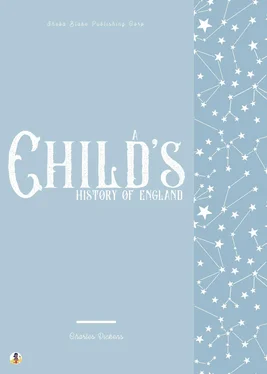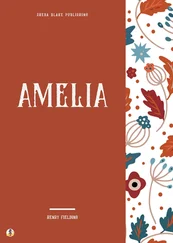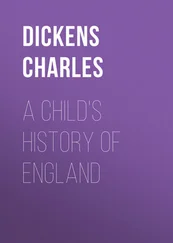Sheba Blake - A Child's History of England
Здесь есть возможность читать онлайн «Sheba Blake - A Child's History of England» — ознакомительный отрывок электронной книги совершенно бесплатно, а после прочтения отрывка купить полную версию. В некоторых случаях можно слушать аудио, скачать через торрент в формате fb2 и присутствует краткое содержание. Жанр: unrecognised, на английском языке. Описание произведения, (предисловие) а так же отзывы посетителей доступны на портале библиотеки ЛибКат.
- Название:A Child's History of England
- Автор:
- Жанр:
- Год:неизвестен
- ISBN:нет данных
- Рейтинг книги:3 / 5. Голосов: 1
-
Избранное:Добавить в избранное
- Отзывы:
-
Ваша оценка:
- 60
- 1
- 2
- 3
- 4
- 5
A Child's History of England: краткое содержание, описание и аннотация
Предлагаем к чтению аннотацию, описание, краткое содержание или предисловие (зависит от того, что написал сам автор книги «A Child's History of England»). Если вы не нашли необходимую информацию о книге — напишите в комментариях, мы постараемся отыскать её.
A Child's History of England — читать онлайн ознакомительный отрывок
Ниже представлен текст книги, разбитый по страницам. Система сохранения места последней прочитанной страницы, позволяет с удобством читать онлайн бесплатно книгу «A Child's History of England», без необходимости каждый раз заново искать на чём Вы остановились. Поставьте закладку, и сможете в любой момент перейти на страницу, на которой закончили чтение.
Интервал:
Закладка:
Still, the spirit of the Britons was not broken. When SUETONIUS left the country, they fell upon his troops, and retook the Island of Anglesey. AGRICOLA came, fifteen or twenty years afterwards, and retook it once more, and devoted seven years to subduing the country, especially that part of it which is now called SCOTLAND; but, its people, the Caledonians, resisted him at every inch of ground. They fought the bloodiest battles with him; they killed their very wives and children, to prevent his making prisoners of them; they fell, fighting, in such great numbers that certain hills in Scotland are yet supposed to be vast heaps of stones piled up above their graves. HADRIAN came, thirty years afterwards, and still they resisted him. SEVERUS came, nearly a hundred years afterwards, and they worried his great army like dogs, and rejoiced to see them die, by thousands, in the bogs and swamps. CARACALLA, the son and successor of SEVERUS, did the most to conquer them, for a time; but not by force of arms. He knew how little that would do. He yielded up a quantity of land to the Caledonians, and gave the Britons the same privileges as the Romans possessed. There was peace, after this, for seventy years.
Then new enemies arose. They were the Saxons, a fierce, sea-faring people from the countries to the North of the Rhine, the great river of Germany on the banks of which the best grapes grow to make the German wine. They began to come, in pirate ships, to the sea- coast of Gaul and Britain, and to plunder them. They were repulsed by CARAUSIUS, a native either of Belgium or of Britain, who was appointed by the Romans to the command, and under whom the Britons first began to fight upon the sea. But, after this time, they renewed their ravages. A few years more, and the Scots (which was then the name for the people of Ireland), and the Picts, a northern people, began to make frequent plundering incursions into the South of Britain. All these attacks were repeated, at intervals, during two hundred years, and through a long succession of Roman Emperors and chiefs; during all which length of time, the Britons rose against the Romans, over and over again. At last, in the days of the Roman HONORIUS, when the Roman power all over the world was fast declining, and when Rome wanted all her soldiers at home, the Romans abandoned all hope of conquering Britain, and went away. And still, at last, as at first, the Britons rose against them, in their old brave manner; for, a very little while before, they had turned away the Roman magistrates, and declared themselves an independent people.
Five hundred years had passed, since Julius Caesar’s first invasion of the Island, when the Romans departed from it for ever. In the course of that time, although they had been the cause of terrible fighting and bloodshed, they had done much to improve the condition of the Britons. They had made great military roads; they had built forts; they had taught them how to dress, and arm themselves, much better than they had ever known how to do before; they had refined the whole British way of living. AGRICOLA had built a great wall of earth, more than seventy miles long, extending from Newcastle to beyond Carlisle, for the purpose of keeping out the Picts and Scots; HADRIAN had strengthened it; SEVERUS, finding it much in want of repair, had built it afresh of stone.
Above all, it was in the Roman time, and by means of Roman ships, that the Christian Religion was first brought into Britain, and its people first taught the great lesson that, to be good in the sight of GOD, they must love their neighbours as themselves, and do unto others as they would be done by. The Druids declared that it was very wicked to believe in any such thing, and cursed all the people who did believe it, very heartily. But, when the people found that they were none the better for the blessings of the Druids, and none the worse for the curses of the Druids, but, that the sun shone and the rain fell without consulting the Druids at all, they just began to think that the Druids were mere men, and that it signified very little whether they cursed or blessed. After which, the pupils of the Druids fell off greatly in numbers, and the Druids took to other trades.
Thus I have come to the end of the Roman time in England. It is but little that is known of those five hundred years; but some remains of them are still found. Often, when labourers are digging up the ground, to make foundations for houses or churches, they light on rusty money that once belonged to the Romans. Fragments of plates from which they ate, of goblets from which they drank, and of pavement on which they trod, are discovered among the earth that is broken by the plough, or the dust that is crumbled by the gardener’s spade. Wells that the Romans sunk, still yield water; roads that the Romans made, form part of our highways. In some old battle-fields, British spear-heads and Roman armour have been found, mingled together in decay, as they fell in the thick pressure of the fight. Traces of Roman camps overgrown with grass, and of mounds that are the burial-places of heaps of Britons, are to be seen in almost all parts of the country. Across the bleak moors of Northumberland, the wall of SEVERUS, overrun with moss and weeds, still stretches, a strong ruin; and the shepherds and their dogs lie sleeping on it in the summer weather. On Salisbury Plain, Stonehenge yet stands: a monument of the earlier time when the Roman name was unknown in Britain, and when the Druids, with their best magic wands, could not have written it in the sands of the wild sea-shore.
Two
Ancient England Under the Early Saxons

THE Romans had scarcely gone away from Britain, when the Britons began to wish they had never left it. For, the Romans being gone, and the Britons being much reduced in numbers by their long wars, the Picts and Scots came pouring in, over the broken and unguarded wall of SEVERUS, in swarms. They plundered the richest towns, and killed the people; and came back so often for more booty and more slaughter, that the unfortunate Britons lived a life of terror. As if the Picts and Scots were not bad enough on land, the Saxons attacked the islanders by sea; and, as if something more were still wanting to make them miserable, they quarrelled bitterly among themselves as to what prayers they ought to say, and how they ought to say them. The priests, being very angry with one another on these questions, cursed one another in the heartiest manner; and (uncommonly like the old Druids) cursed all the people whom they could not persuade. So, altogether, the Britons were very badly off, you may believe.
They were in such distress, in short, that they sent a letter to Rome entreating help - which they called the Groans of the Britons; and in which they said, ‘The barbarians chase us into the sea, the sea throws us back upon the barbarians, and we have only the hard choice left us of perishing by the sword, or perishing by the waves.’ But, the Romans could not help them, even if they were so inclined; for they had enough to do to defend themselves against their own enemies, who were then very fierce and strong. At last, the Britons, unable to bear their hard condition any longer, resolved to make peace with the Saxons, and to invite the Saxons to come into their country, and help them to keep out the Picts and Scots.
It was a British Prince named VORTIGERN who took this resolution, and who made a treaty of friendship with HENGIST and HORSA, two Saxon chiefs. Both of these names, in the old Saxon language, signify Horse; for the Saxons, like many other nations in a rough state, were fond of giving men the names of animals, as Horse, Wolf, Bear, Hound. The Indians of North America, - a very inferior people to the Saxons, though - do the same to this day.
Читать дальшеИнтервал:
Закладка:
Похожие книги на «A Child's History of England»
Представляем Вашему вниманию похожие книги на «A Child's History of England» списком для выбора. Мы отобрали схожую по названию и смыслу литературу в надежде предоставить читателям больше вариантов отыскать новые, интересные, ещё непрочитанные произведения.
Обсуждение, отзывы о книге «A Child's History of England» и просто собственные мнения читателей. Оставьте ваши комментарии, напишите, что Вы думаете о произведении, его смысле или главных героях. Укажите что конкретно понравилось, а что нет, и почему Вы так считаете.












